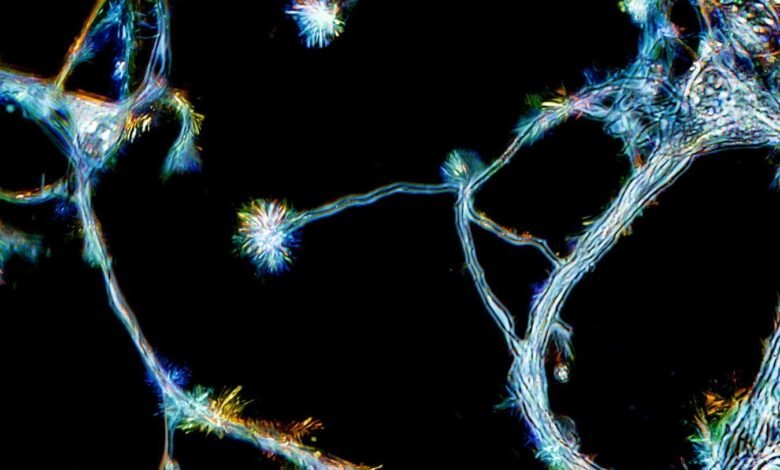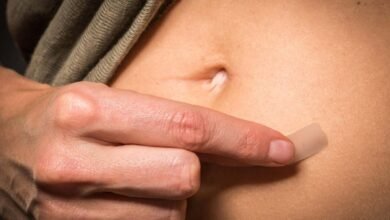Do we grow new brain cells as adults? The answer seems to be yes


Developing brain cells from the hippocampus growing in culture
ARTHUR CHIEN/SCIENCE PHOTO LIBRARY
Whether or not we grow new brain cells as adults has been the subject of an ongoing and often contentious debate. Now, evidence suggests that we can. This could help answer one of neuroscience’s most controversial questions and has sparked some speculation that the process could be exploited to treat conditions like depression and Alzheimer’s disease.
New neurons form via a process called neurogenesis in children, as well as in adult mice and macaques. This involves stem cells repeatedly giving rise to so-called progenitor cells that proliferate to form immature neurons that later become fully developed.
Prior studies on human adults have identified stem cells and immature neurons in the hippocampus. This brain region, which is crucial for learning and memory, is a prime spot for neurogenesis in children and some adult animals, but progenitor cells have yet to be seen here in adult humans. “We were missing this link, and that’s one of the main arguments against new neurons forming in the adult human brain,” says Evgenia Salta at the Netherlands Institute for Neuroscience, who wasn’t involved in the new research.
To find this link, Jonas Frisén at the Karolinska Institute in Sweden and his colleagues first set about creating machine learning models that can accurately identify progenitor cells. This involved collecting hippocampus samples from six young children whose brains were donated by their parents for research when they died.
The researchers trained the artificial intelligence models to identify progenitor cells based on the activity of around 10,000 genes, using data extracted from the samples. “In childhood, progenitor cells look similar to what they do in mice, so we can easily identify these,” says Frisén. “[The idea is] we can take the molecular fingerprints of childhood progenitors and use that to identify these cells in adults.”
To put the models to the test, the team had them identify progenitor cells in hippocampus samples from young mice. The models correctly pinpointed 83 per cent of the progenitor cells and incorrectly classed another type of cell as a progenitor less than 1 per cent of the time. In another test, the models correctly predicted an almost complete absence of progenitor cells in samples of an adult human cortex, a brain region where there is no evidence to suggest neurogenesis occurs in people.
“They really nicely validate their model by going from human child data, to mouse data and then adult human data,” says Sandrine Thuret at King’s College London.
Once this validation was complete, the researchers could test if neurogenesis occurs in human adults, by using the models to pinpoint progenitor cells in the hippocampus of 14 people who were aged between 20 and 78 when they died.
Crucially, they first carried out a step that increased their odds of catching progenitor cells, which prior studies suggest would be very rare in adults. The team used an antibody to select for brain cells that were dividing at the time of death, including non-neuronal cells such as immune cells and any progenitors. This helped to exclude common non-dividing neuronal cells, such as mature neurons, making it easier to find rare ones.
They then fed data that related to the genetic activity from those dividing cells into the models. “They enriched for the dividing cells, this allowed them to find those very rare cells which are missed if you put all the cells in,” says Hongjun Song at the University of Pennsylvania. Prior studies didn’t do this, he says.
The team found progenitor cells in nine donors. “In rodents, it’s very well known that environmental and genetic factors affect how much neurogenesis there is, so my guess is that differences among humans is due to genetic and environmental factors as well,” says Frisén.
The results strongly suggest to Thuret, Song and Salta that adult neurogenesis is real. “It really helps the field make a significant step forward, because it’s adding this missing link,” says Salta.
“Neurons really are born from cell division that is present during adulthood – that’s really what this paper nails down,” says Thuret.
It may one day be possible to study differences in neurogenesis in adults with and without conditions that affect the brain, such as depression and Alzheimer’s, says Thuret. Perhaps drugs that boost this process could lessen symptoms, she wonders.
But Jon Arellano at Yale University says that even if new brain cells do form in adults, there may be too few of them to be of therapeutic use. Yet Thuret thinks this is unlikely to be a problem. “In mice we see you only need a very small amount to be important for learning [and] memory,” she says.
Topics:
Source link




